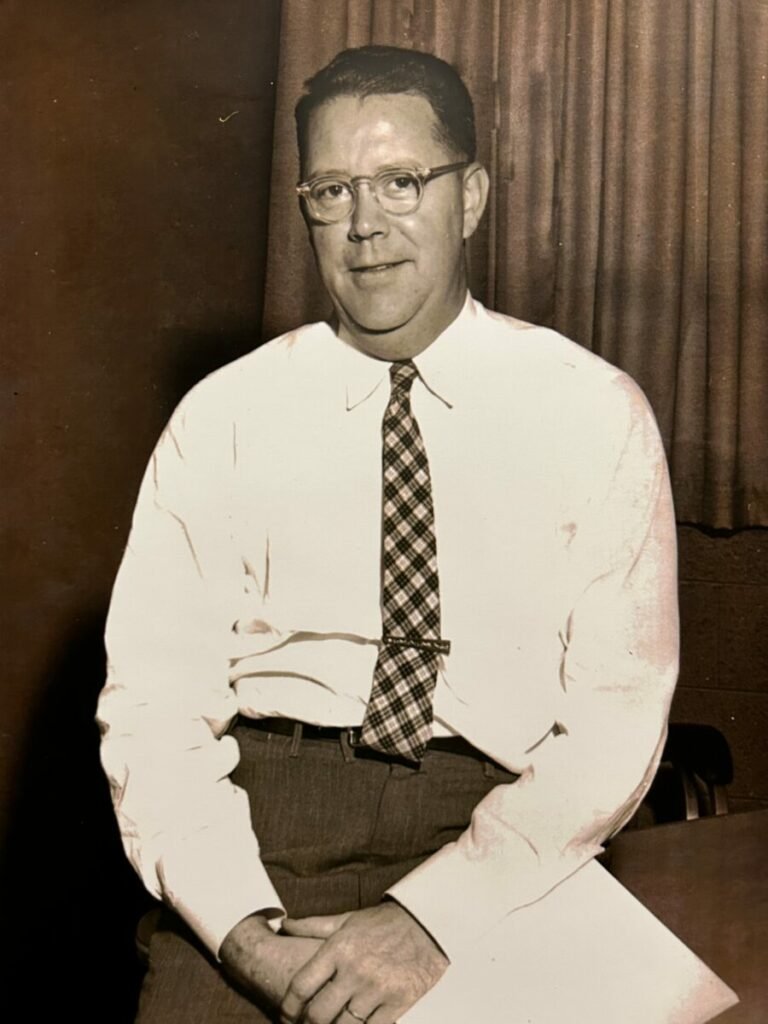
My father died twenty-five years ago when I was fifty; a third of my life ago. He was by most measures a good man, and I grieved as a good son should. I think of him often, have written poems about our relationship. So, I was eager, a few years back, to read An Odyssey: A Father, A Son, and An Epic (Daniel Mendelsohn) which, though mostly memoir, explores the father/son relationship; Odysseus and Telemachus being an early example in literature. My father was not secretive though reserved, not agitated but conscientious, not obnoxiously ambitious but respected.
I have to confess that after his death some complications of family dynamics were ‘clarified,’ which aroused in me sympathy for him: not disappointment or diminishment. I have been thinking of fathers and their children as I was recently a judge for a poetry contest on the subject of “Honoring Fathers.”
From The Odyssey to the present day, there are many poems on various aspects of fatherhood. Google poems about fathers and you will receive a list which includes many well-known works: “Lines to My Father” by Countee Cullen, “My Papa’s Waltz” by Theodore Roethke, “Those Winter Sundays” by Robert Hayden, “Daddy” by Silvia Plath, and “Do Not Go Gentle” by Dylan Thomas for a few examples. One important aspect of such works involves and depends on the point of view of the speaker or persona: some are from a son’s or daughter’s perspective while oppositely, perhaps paradoxically, others are from the father’s point of view speaking of or about a son or daughter.
The character of the speaker (the father) in the second approach is more indirect, subtle, more complex emotionally than in the first. Ben Johnson’s “On My First Son” or Richard Wilbur’s “The Writer” might be in this category. William Snodgrass’s “Heart’s Needle,” which, while addressed to his daughter, says a lot about the poet. Great skill is required to write this type of point of view; the speaker saying more about himself than the ‘subject.’
By far, the usual point of view is written by sons or daughters observing, describing, remembering fathers. Most of the poems I read for the competition were poems of praise and fond remembrance of gentle hands, wise guidance, and arresting kindness. The explanatory subtitle of the contest was “Honoring fathers and their sacrifices” which narrows the range of possible poems, precluding a completely negative portrait. Coming close is Sylvia Plath’s “Daddy,” a love/hate portrait which is shocking and depressing, making the reader uncomfortable (as intended). I wonder (only for a moment) can or do all fathers make sacrifices? Many sentimental poems are full of such admirable sacrifices. But Robert Hayden’s poem, “Those Winter Sundays,” is an example of the balance necessary for a compelling piece.
The relationship of child to father is subjective and therefore, it is difficult to portray the complex and contradictory character as one’s father. Granted, some poems might be from a child’s point of view and thus more cardboard black and white than if described by an adult child, say of fifty years old. When does the ‘turning point’ in one’s development take place? Roethke’s poem is clearly written by an adult, but the poet attempts to write from a child’s point of view. Hayden’s poem is also remembering from a child’s perspective with an adult conclusion. Again, an artful balance is necessary. It is difficult to write completely from a child’s point of view.
Another approach presents the father as dying or recently deceased as in James Dickie’s “The Hospital Window” or Thomas’s “Do Not Go Gentle.” Death of a father condenses many details of relationship into an understanding or insight.
The entries in the Fatherhood contest category deal with all these points of view, though most are of the reminiscence variety and most of the remembering ‘dear old dad’ are without much tension between the child’s innocence and the adult’s wisdom. By the process of judging dozens of anonymous poems, I am provoked to re-read and re-evaluate my own poems about my father, asking myself, was I truthful, was I fair, and in both instances, does it matter? Are my efforts compelling to the reader? Will the name and parenthetical dates mean any more when the reading is done? Will the reader recognize their own father in mine or remark how different their experience/relationship was? Is memory embodied in the work? Does art replace grief?
Oboe Lesson
Daddy took it down from the closet shelf
as if it had always been there.
He sat on the quilt-colored bed to open
the dusty case with a mysterious care.
Assembled tubes, tightened reeds, licked his lips—
keys clicked as his memory fingered,
then puckered red, he blew a single vowel:
the wallpaper faded, the news of it lingered.
He did not look at me. His fingers fluttered
another surprise, another surprise.
A mockingbird sputtered in the window’s tree:
he didn’t explain, excuse, or advise:
pulled apart the chrome and black,
shut the secrets in their box and put it back.
(originally posted on Verse-virtual, 2016)

Share this post with your friends.

